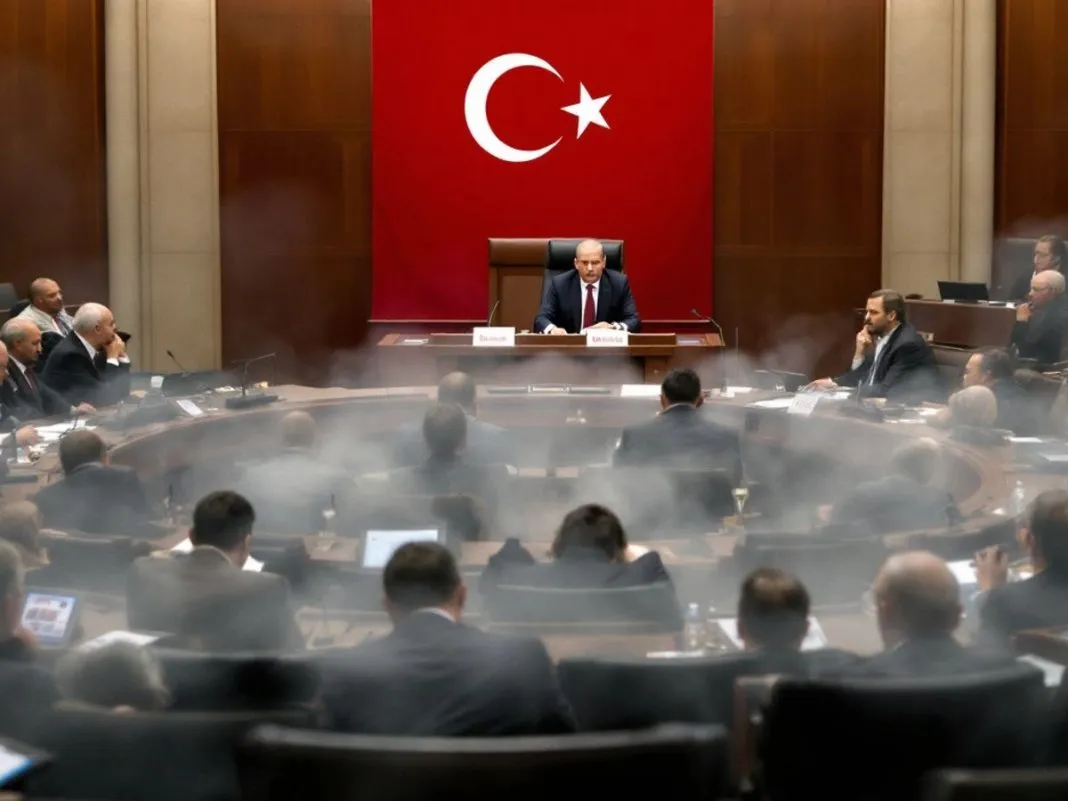In a surprising political maneuver, Devlet Bahceli, leader of Turkey’s Nationalist Movement Party (MHP), has invited Abdullah Ocalan, the imprisoned leader of the Kurdistan Workers’ Party (PKK), to address the Turkish parliament. This unprecedented call has sparked discussions about the potential for a new peace process regarding the long-standing Kurdish issue in Turkey.
Key Takeaways
- Devlet Bahceli proposes that Ocalan publicly declare the dissolution of the PKK in parliament.
- The invitation marks a significant shift in Bahceli’s historically hardline stance against the PKK.
- Ocalan has been imprisoned since 1999 and has faced near-total isolation.
- Bahceli’s comments suggest a possible legal pathway for Ocalan’s release under the “Right to Hope” law.
Bahceli’s Bold Proposal
During a recent meeting of his party, Bahceli stated, “If the isolation of the terrorist leader is lifted, let him come and speak at the DEM Party meeting in parliament.” He emphasized that Ocalan should declare that terrorism has ended and the PKK has disbanded. This statement is particularly striking given Bahceli’s previous opposition to any negotiations with the PKK.
Bahceli’s call for Ocalan to address parliament is seen as a potential turning point in Turkish politics, as it opens the door for discussions that have been largely absent in recent years. He hinted that if Ocalan shows determination, it could pave the way for his release under Article 3 of the European Convention on Human Rights, known as the “Right to Hope.”
Historical Context
Ocalan has been imprisoned on Imrali Island since 1999, following his capture in Kenya. The PKK, which has fought for Kurdish autonomy since 1984, is designated as a terrorist organization by Turkey and several other countries. Previous peace talks between the Turkish government and the PKK collapsed in 2015, leading to increased military operations against the group.
Bahceli’s recent gestures, including shaking hands with members of the pro-Kurdish Peoples’ Equality and Democracy Party (DEM Party), have raised hopes for a renewed dialogue. His comments suggest a willingness to address the Kurdish issue through parliamentary means, a significant departure from his past rhetoric.
Reactions from Political Leaders
The response to Bahceli’s proposal has been mixed. Ozgur Ozel, leader of the main opposition Republican People’s Party (CHP), expressed cautious optimism, stating that parliament should be the venue for resolving the Kurdish question. Meanwhile, DEM Party leaders have welcomed Bahceli’s overtures, emphasizing that ending Ocalan’s isolation is crucial for any peace process.
President Recep Tayyip Erdogan has also weighed in, indicating that the ruling coalition is committed to finding a solution to the Kurdish issue. He stated that the opportunity presented by Bahceli’s comments should not be squandered for personal agendas.
The Path Forward
Bahceli’s invitation to Ocalan could signify a new chapter in Turkey’s approach to the Kurdish issue. If Ocalan is allowed to speak in parliament, it may lead to a broader dialogue about the rights and concerns of Kurdish citizens in Turkey. However, the success of any potential peace process will depend on the willingness of all parties to engage in meaningful discussions and address the underlying issues that have fueled the conflict for decades.
As Turkey navigates this complex political landscape, the eyes of the nation will be on parliament, where the future of the Kurdish question may be decided.






